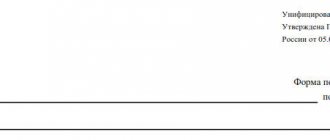General provisions
The Labor Code of the Russian Federation stipulates that only the employer can decide whether the organization will pay for the professional training of a specialist. The employer is also given the right to set the rules and training regime. Typically, employee development is a manager's right, not an obligation, but there are a few exceptions. Specialists who are required to improve their qualifications include :
- workers of medical institutions;
- civilian employees;
- notaries and their assistants;
- auditors.
When training is paid for by the employer at the expense of the organization, an additional condition should be included in the employee’s employment contract obliging him to work at the enterprise for a certain period after completing his studies. In order for such a provision to comply with the law, the employment agreement, amendment to it, or a separate contract must contain a clause stating the employer’s agreement to pay all study costs. The procedure for sending a specialist for advanced training consists of the following stages:
- A plan of necessary classes is drawn up.
- An educational institution is selected where the person will study.
- An apprenticeship contract or additional agreement is concluded, reflecting information about the conditions of training and the subsequent period of work. The parties sign the document and receive a copy.
- An order is issued to send the employee to study. The employee confirms familiarization with the document with a personal signature.
The employee must complete training within the prescribed period. If for some reason he does not want to do this, then the employer has the right to demand compensation for expenses incurred to pay for advanced training.
Employee training at the expense of the employer according to the Labor Code of the Russian Federation
Article 196 of the Labor Code states that the decision to pay for an employee’s professional training is made by the employer. The head also has the right to independently determine the conditions and procedure for study. All adopted rules must be recorded in the collective agreement and other internal acts.
Is it necessary to withhold personal income tax when an organization pays the cost of training an employee?
In most cases, employee training is a right, but not an obligation, of the employer. However, there are exceptions specified in Part 4 of Article 196 of the Labor Code. The employer must organize professional training for certain categories of employees:
- Medical employees (Article 79 of Federal Law No. 323).
- Civilian workers (Articles 48 and 62 of Federal Law No. 72).
- Notaries and their assistants (Article 30 of the Fundamentals of the Law “On Notaries”).
- Auditors (Article 11 of Federal Law No. 307).
The employer is obliged to organize training even if this is considered a condition for the employee’s continued employment.
Contract or agreement
To protect its interests when training an employee at the expense of the organization’s funds, the employer has the right to enter into an apprenticeship contract or training agreement with him.
This document is drawn up and considered separately from the tripartite agreement with the institution providing educational services. The parties must sign it before the employee is officially enrolled in training. In addition, it is permissible to include the necessary conditions in the employee’s existing employment contract. Documenting the agreements between the employer and the specialist guarantees that the parties fulfill all their obligations. It will also allow the manager to return material resources if the employee violates the terms of the agreement. A refund of the amount spent is possible:
- When concluding a student agreement, if an employee, after completing his studies, does not fulfill his obligations without good reason, including not working.
- When drawing up a training agreement, when an employee submits an application for dismissal without good reason before the expiration of the work period.
Before preparing documents for advanced training, the employer needs to decide what type of contract will most accurately reflect the relationship between the parties. Subsequently, if the employee does not fulfill the terms of the agreement, the employer will be able to correctly formulate its claims against him.
Insurance contributions to extra-budgetary funds
Tuition fees for basic and additional professional educational programs, including for training and retraining of workers, are not subject to insurance contributions. In this case, it does not matter (as with personal income tax) on whose initiative the employee is trained - the employer’s or his own. The main thing is that training takes place in basic or additional programs in accordance with state standards and requirements.
Also, specialists from the Ministry of Health and Social Development, in letters dated August 5, 2010 No. 2519-19, and dated August 6, 2010 No. 2538-19, noted the following. Payment for employee training conducted at the initiative of the employer in order to more effectively perform his job duties, regardless of the form of such training, is not subject to insurance contributions on the basis of Art. 9 of the Law on Insurance Contributions. Non-taxable payments also include all types of compensation established by the legislation of the Russian Federation related to reimbursement of expenses for professional training, retraining and advanced training (clause “e”, clause 2, part 1, article 9 of the law on insurance contributions). Guarantees and compensation for employees combining work with training are established in Chapter. 23 Labor Code of the Russian Federation.
Based on paragraphs. 2 p. 1 art. 20.2 of Federal Law No. 125-FZ “On compulsory social insurance against accidents at work and occupational diseases”, all types of compensation payments established by law related to reimbursement of expenses for training, retraining and advanced training of workers are not subject to insurance premiums.
Employer's rights and obligations
It is important for the employer to understand in which cases he is obliged to train specialists and in which he is not. This determines whether he will be able to receive compensation for the costs incurred.
If advanced training is carried out at the initiative of the manager, then under certain conditions the employer has the right to recover money from the employee. This situation is explained by the fact that the employer himself makes the decision to send workers for retraining if the legislation does not provide for their periodic vocational training.
If additional studies are carried out in connection with the provisions of regulatory legal acts, then it is impossible to receive compensation for the funds spent. In this case, employees must undergo advanced training only at the expense of the employer, and therefore, even if a specialist is dismissed immediately after completion of training, expenses cannot be recovered from him.
The employer can use various methods to improve the level of staff knowledge that do not require a license to conduct educational work. For example, he has the right to introduce mentoring at the enterprise and organize trainings. But for such training it is impossible to draw up a student agreement, that is, if an employee violates oral agreements regarding additional studies, it will not be possible to recover costs from him.
simplified tax system
Compensation for training expenses received upon early dismissal of an employee should be included in income, regardless of the object of taxation (clause 1 of Article 346.15, clause 3 of Article 250 of the Tax Code of the Russian Federation). The fact whether the organization took such expenses into account when calculating the single tax or not does not matter. For more information, see:
- How to formalize and record the costs of training employees in the interests of the organization;
- How to formalize and record the costs of training employees in their own interests.
The amount of non-operating income will be equal to the amount of deductions from the employee’s salary or receipts to the cash desk (to the current account) of the organization. The date of recognition of income is the day on which the amount was withheld from the employee or paid by him independently. This follows from paragraph 2 of Article 346.17 of the Tax Code of the Russian Federation.
An example of accounting for compensation received to reimburse the costs of training an employee upon dismissal
In February, OJSC “Proizvodstvennaya” sent accountant V.N. Zaitsev for advanced training courses. The cost of training was 23,600 rubles. An agreement was concluded with Zaitseva that after completing the courses she must work in the organization for at least a year. If during this period Zaitseva resigns voluntarily, she will have to reimburse part of the training costs attributable to the time not worked.
Zaitseva completed the course on April 7. In December, she wrote a letter of resignation of her own free will (last day of work - December 17). Since Zaitseva violated the terms of the agreement, she must compensate the organization for part of the training costs attributable to unworked time - 7,177 rubles.
The accountant withheld 4,350 rubles from Zaitseva’s salary for December. Zaitseva deposited the remaining amount (2,827 rubles) in cash at the cash desk in January of the following year.
The Master's accountant included the compensation received by the organization as income. In December, the single tax base increases by 4,350 rubles, in January of the next year – by 2,827 rubles.
Similarly, non-operating income includes compensation for expenses by a citizen who was not hired after training or fired before he worked for a year (clause 1 of Article 346.15, clause 3 of Article 250 of the Tax Code of the Russian Federation).
Types of training
The classification of employee training is presented in Art. 10, 73, 76 of Federal Law No. 273-FZ. It includes:
- preparation;
- retraining;
- training.
The amount of compensation payments and the guarantees provided to the specialist depend on the type of study. Training can take place without interruption from the production process. If this is not possible, then the employer is obliged to maintain the employee’s average salary and position. In cases where the educational institution is located in another locality, the company pays the employee’s travel expenses. The training specialist is provided with guarantees established by law:
- payment of student leave;
- compensation for travel expenses to the place of study;
- maintaining average wages.
All transactions performed in the process of registration and payment for training must be confirmed by primary documents. In addition, you must have proof of receipt of the service from the educational institution. For this purpose, a properly executed act with full details of both organizations and personal signatures of their representatives is suitable. Documents on the employees’ education, for example, a certificate or diploma, can also confirm the receipt of the service.
Study and personal income tax
In paragraph 21 of Art. 217 of the Tax Code of the Russian Federation (Tax Code of the Russian Federation) provides that the amount of tuition fees paid for the taxpayer’s education in basic and additional general education and professional educational programs, his vocational training and retraining in educational institutions is exempt from personal income tax. In this regard, see letters of the Ministry of Finance of Russia dated March 24, 2010 No. 03–04–07/1–15, dated May 7, 2008 No. 03–04–06–01/124.
Tuition fees are not subject to personal income tax only if they are provided by a Russian licensed institution. Also, amounts paid for studying at a foreign educational institution that has the appropriate status are not subject to taxation.
Consequently, paid training conducted by other persons who do not have the appropriate status is subject to personal income tax, that is, recognized as income of an individual. The opinion of the Ministry of Finance of Russia on this matter in letters dated December 27, 2010 No. 03–04–05/9–754, dated September 7, 2009 No. 03–04–06–01/234.
The existence of an employment relationship between the organization paying for the training and the student does not affect the tax exemption of amounts of such payment. This position was expressed by the Ministry of Finance in letters dated January 20, 2011 No. 03–04–06/6–6, dated September 10, 2009 No. 03–04–06–02/67.
...if an organization compensates an employee for training expenses that he paid at his own expense, the amount of reimbursement of expenses is exempt from personal income tax...
Even if an organization pays for the education of the children of the organization’s employees, as well as other persons who are not its employees, it does not act as a tax agent for personal income tax. These amounts are not subject to personal income tax on the basis of clause 21 of Art. 217 of the Tax Code of the Russian Federation (letter of the Ministry of Finance of Russia dated February 15, 2011 No. 03–04–06/6–28).
The Tax Code does not establish the obligations of persons who are not tax agents to provide information on the income received from them by individuals. This obligation is provided for in Art. 230 of the Tax Code of the Russian Federation only for tax agents (letter of the Ministry of Finance of Russia dated September 17, 2009 No. 03–04–06–01/237).
If an organization compensates an employee for training expenses that he paid at his own expense, the amount of reimbursement of expenses within the established norms is exempt from personal income tax (Clause 3 of Article 217 of the Tax Code of the Russian Federation). Considering that the current legislation does not establish standards, the employer himself determines the need for an employee to receive education and establishes standards for reimbursement of training costs in an internal local document.
Work for studying
Training an employee at the expense of the enterprise is an investment by the employer, since he plans to get a good specialist who will perform job duties at a higher level.
But some employees, having completed advanced training courses or received special education, decide to leave the organization. In this case, the employer loses not only the employee, but also the money invested in his training. It is impossible to oblige a specialist to work off expenses incurred by the enterprise on the basis of an order to send him to study. In addition, in accordance with Articles 196 and 199 of the Labor Code of the Russian Federation, the employer is obliged to list the conditions under which the employee will study in one of the following documents:
- training agreement;
- collective agreement;
- additional agreement.
In order to prevent unreasonable waste of material resources in a document establishing the responsibilities of the parties in the matter of an official’s studies, the employer has the right to establish a period of work for training or the amount of compensation when dismissing an employee before the end of this period. It must also contain the following information:
- specialty or area of study;
- training period;
- cost of educational institution services;
- the employee’s obligation to work at the enterprise for a certain period;
- compensation for the employer's expenses when dismissing an employee for a reason that is not considered valid.
The working period depends on the agreement between the head of the organization and the employee going to study, and is set on an individual basis. It can last from several months to several years.
Typically, when determining it, the following grounds are taken into account:
- cost of education;
- relevance and usefulness of the acquired knowledge for the production process;
- duration of the study period.
All terms should be fixed in the agreement concluded between the parties. This measure will resolve a labor dispute over the length of working hours.
Accounting
In accounting, reflect the employee’s debt to the organization to pay for training by posting:
Debit 73 Credit 91-1
– reflects the employee’s debt to reimburse the organization’s expenses for his training.
For the amount of deductions from your salary, make an entry:
Debit 70 Credit 73
– reimbursement of training expenses is reflected.
If an employee voluntarily compensates the organization for the cost of his training (above the average monthly salary), make an entry in the accounting:
Debit 50 Credit 73
– the amount of debt for reimbursement of training expenses has been deposited into the cash register.
This procedure follows from the Instructions for the chart of accounts (accounts 50, 70, 73, 91-1).
Collection of funds from an employee
Recovery from an employee of expenses for educational services previously received by him is possible only if he terminates the employment contract without a valid reason. This rule is established in Articles 207 and 249 of the Labor Code of the Russian Federation. But the legal acts do not specify the reasons that can be considered valid, and therefore such nuances are determined by the practice of the judiciary. Valid reasons for termination of cooperation are:
- reduction of staff or number of employees;
- the employee cannot continue to perform his job duties due to health reasons, as evidenced by a medical certificate, and the employer is not able to offer him a suitable place of work;
- conscription of a specialist for compulsory military service.
Unexcusable reasons include the employee’s guilty actions (various violations of labor discipline, for example, absenteeism), as well as his own desire.
OSNO AND UTII
If an employee who compensates the organization for the costs of his training is engaged only in activities under the general taxation system, then take into account the amount of compensation received from him in the manner prescribed for organizations using the general taxation system.
The taxation of an organization will not be affected in any way by receiving compensation from an employee engaged only in activities subject to UTII.
A different situation arises if the employee is engaged in both types of activities. The current tax legislation does not contain a mechanism for distributing non-operating income between different types of activities. In similar situations, the Russian Ministry of Finance orders that the entire amount received be included in income tax income (letter dated March 15, 2005 No. 03-03-01-04/1/116).
Cost accounting
The costs of employee training must be taken into account for tax purposes in accordance with the provisions of Art. 264 of the Tax Code of the Russian Federation. But accounting can only be carried out if the expenses meet the following conditions:
- employee education is paid for in the interests of the enterprise, that is, the costs are economically justified;
- personnel training is carried out in an organization that has all the necessary permits and licenses;
- The employee has an employment contract with the employer.
For proper accounting, it is necessary to confirm all costs incurred. This can be done if you have the following documents:
- an agreement concluded by the employer with the educational institution;
- order of the head of the enterprise to send an employee for training;
- educational program indicating the number of hours of study;
- service provision certificate;
- a copy of a document confirming that the employee has completed training, for example, a diploma or certificate.
If increasing the education of a specialist is carried out in the interests of the person himself, and not to increase the economic profit of the organization, then the costs accompanying this process should not be taken into account when calculating income tax. That is, the tax base cannot be reduced in this way.
In order for the tax base to be reduced legally, it is necessary to prove that there is an economic benefit for the organization in the employee’s studies and that there is a connection between the educational service and the production activities of the enterprise. For example, if a company provides transport services, and an employee is studying to become a makeup artist, then the costs of his studies cannot affect the size of the tax base.
For an enterprise to successfully operate and develop, it needs qualified specialists. To do this, the employer pays for various training programs for staff, but training of employees at the employer’s expense according to the Labor Code of the Russian Federation requires either subsequent repayment of the spent funds or their compensation.
Employee training: how to account for costs?
Highly qualified personnel are the key to the success of any commercial organization. Therefore, it is not surprising that from time to time the company’s specialists are sent for advanced training, retraining, special courses, seminars, and are trained in second professions. For tax purposes, accounting for such expenses is possible only if special conditions set forth by the Tax Code of the Russian Federation are met, as well as a number of restrictions and obligations established by the Labor Code of the Russian Federation.
Author: S. N. Zaitseva
Magazine "Current Issues of Accounting and Taxation"
Classification of training expenses
Labor legislation establishes that the form of employee training is determined by the employer. In particular, in Art. 196 Labor Code of the Russian Federation
it is said that
the employer provides professional training, retraining, advanced training of employees, teaching them second professions in the organization, and, if necessary, in educational institutions of primary, secondary, higher vocational and additional education on the terms and in the manner determined by the collective agreement, agreements, employment contract.









